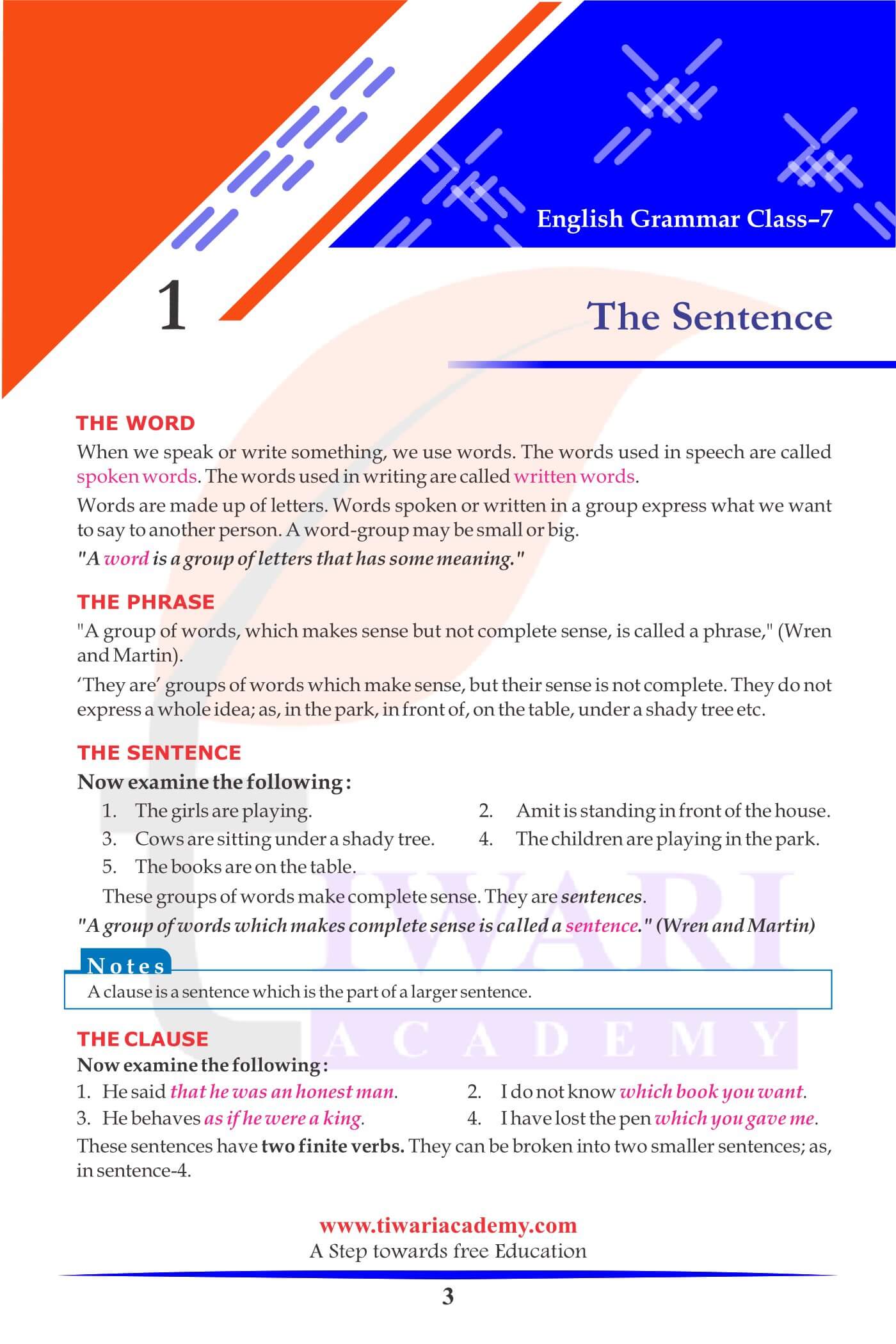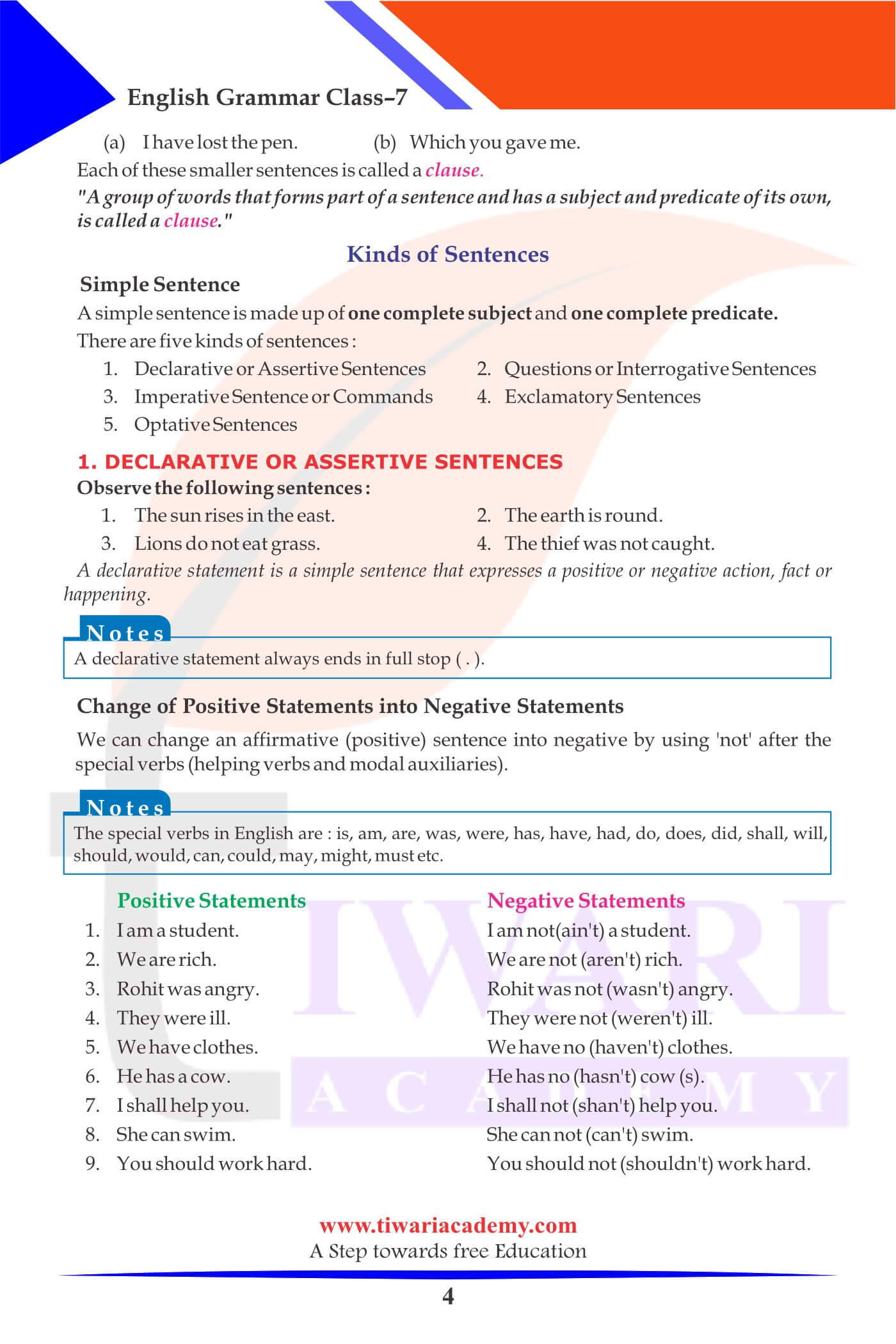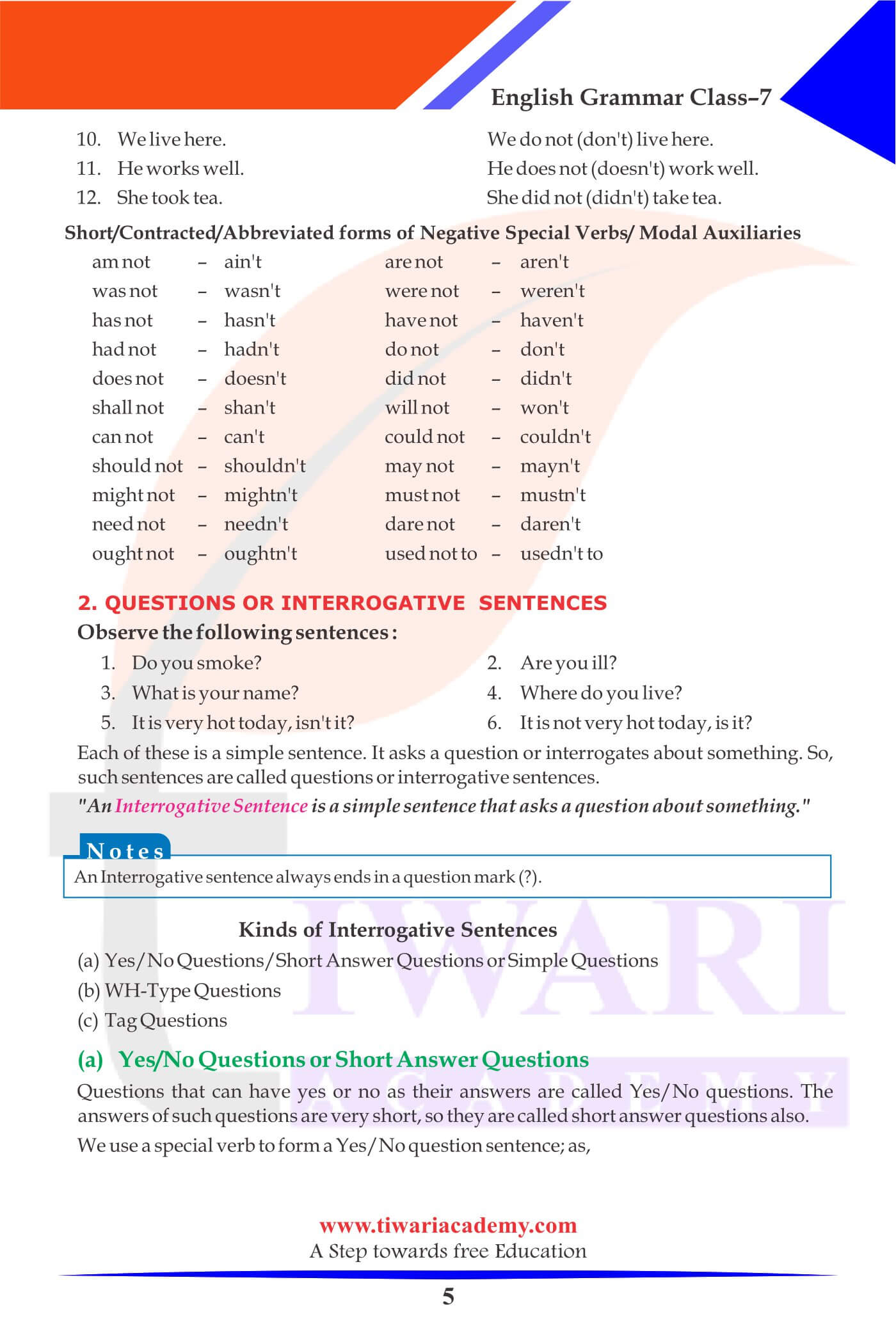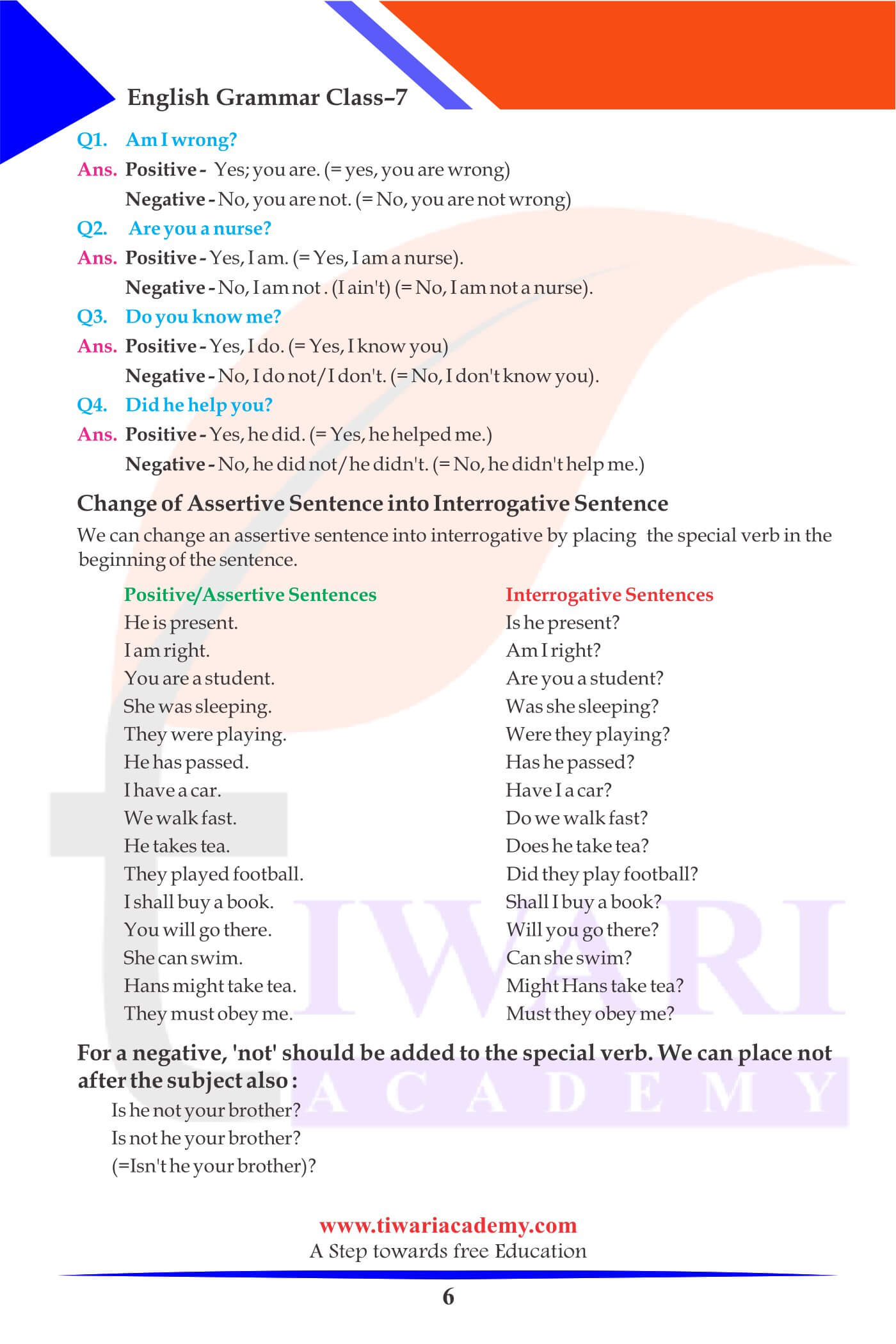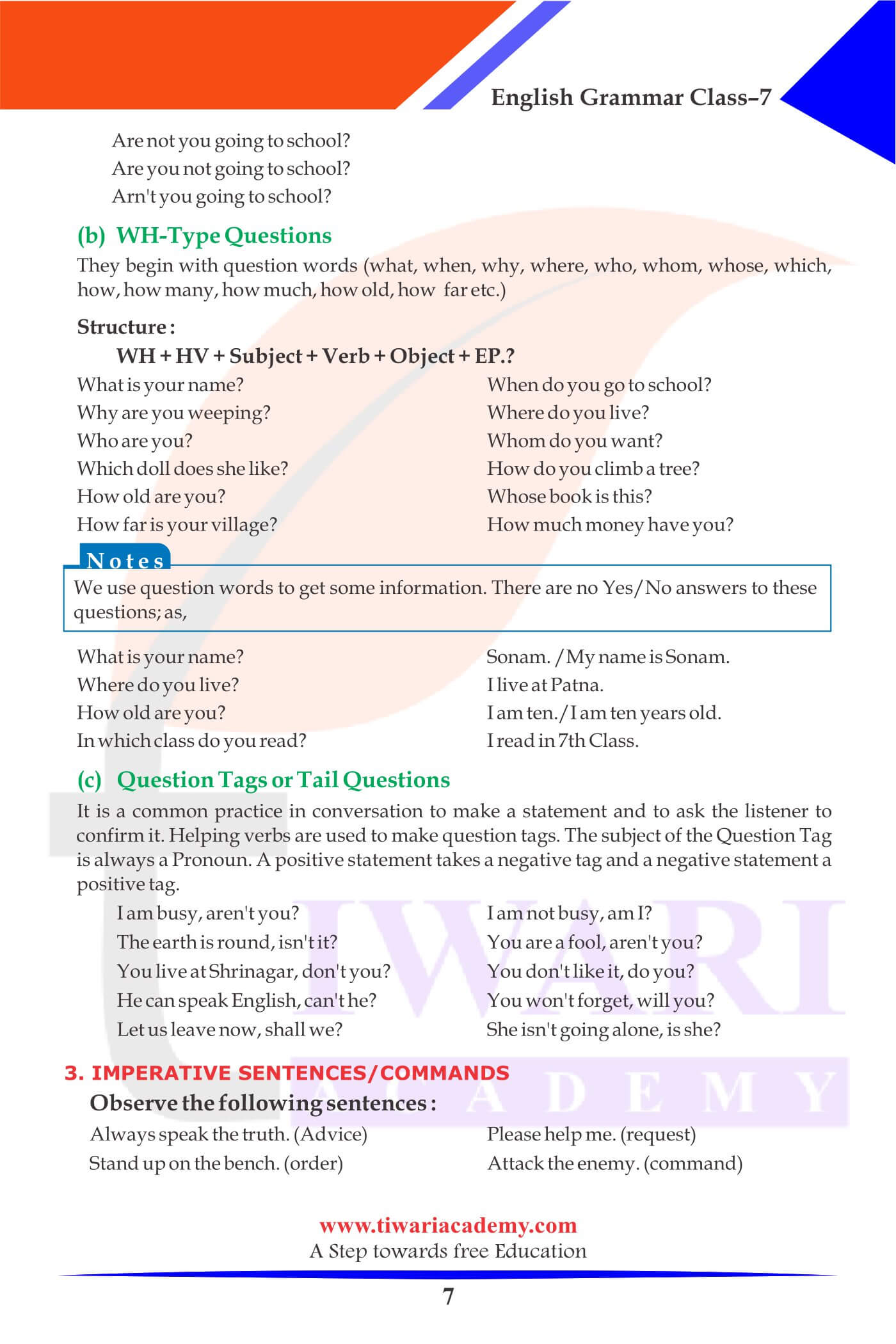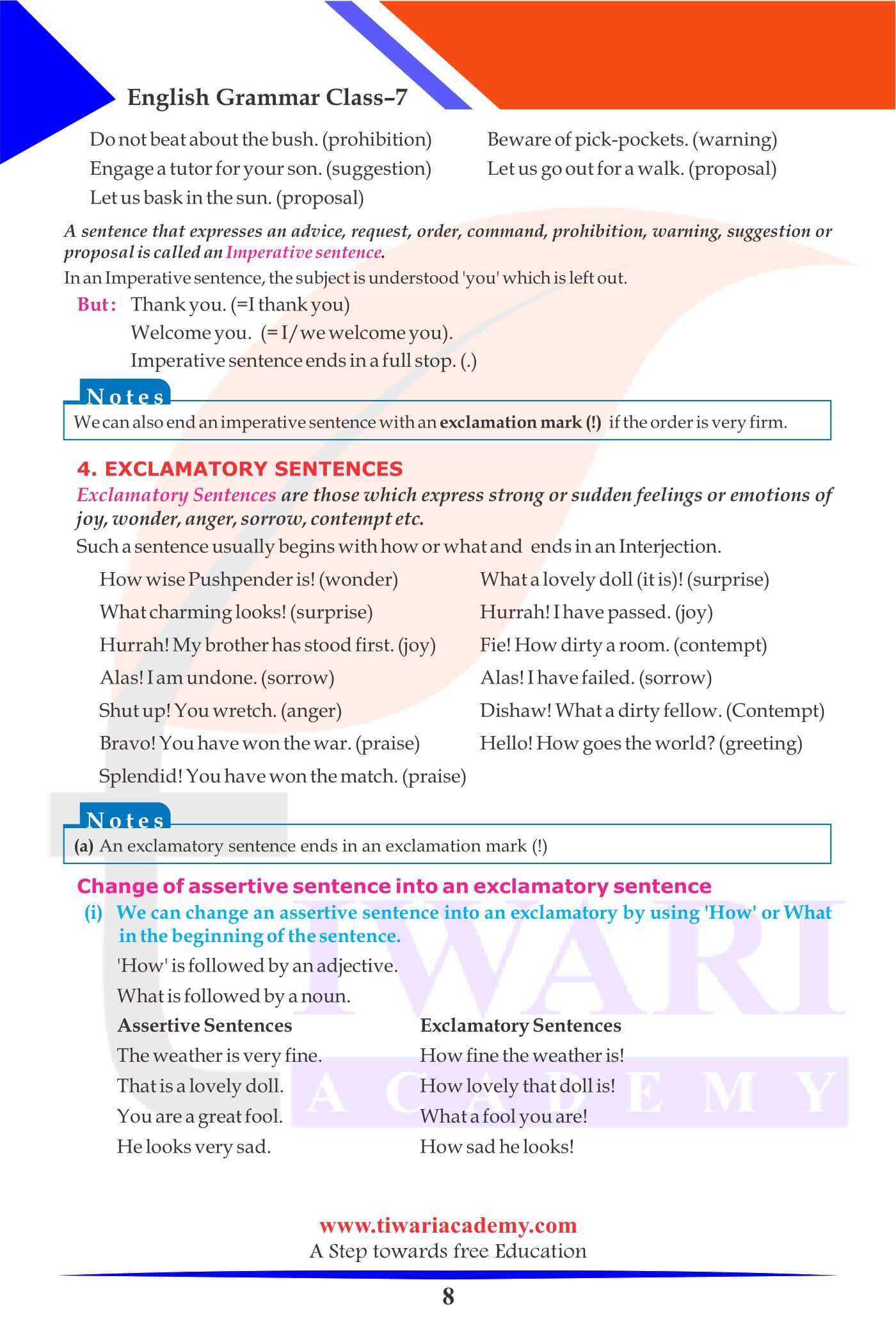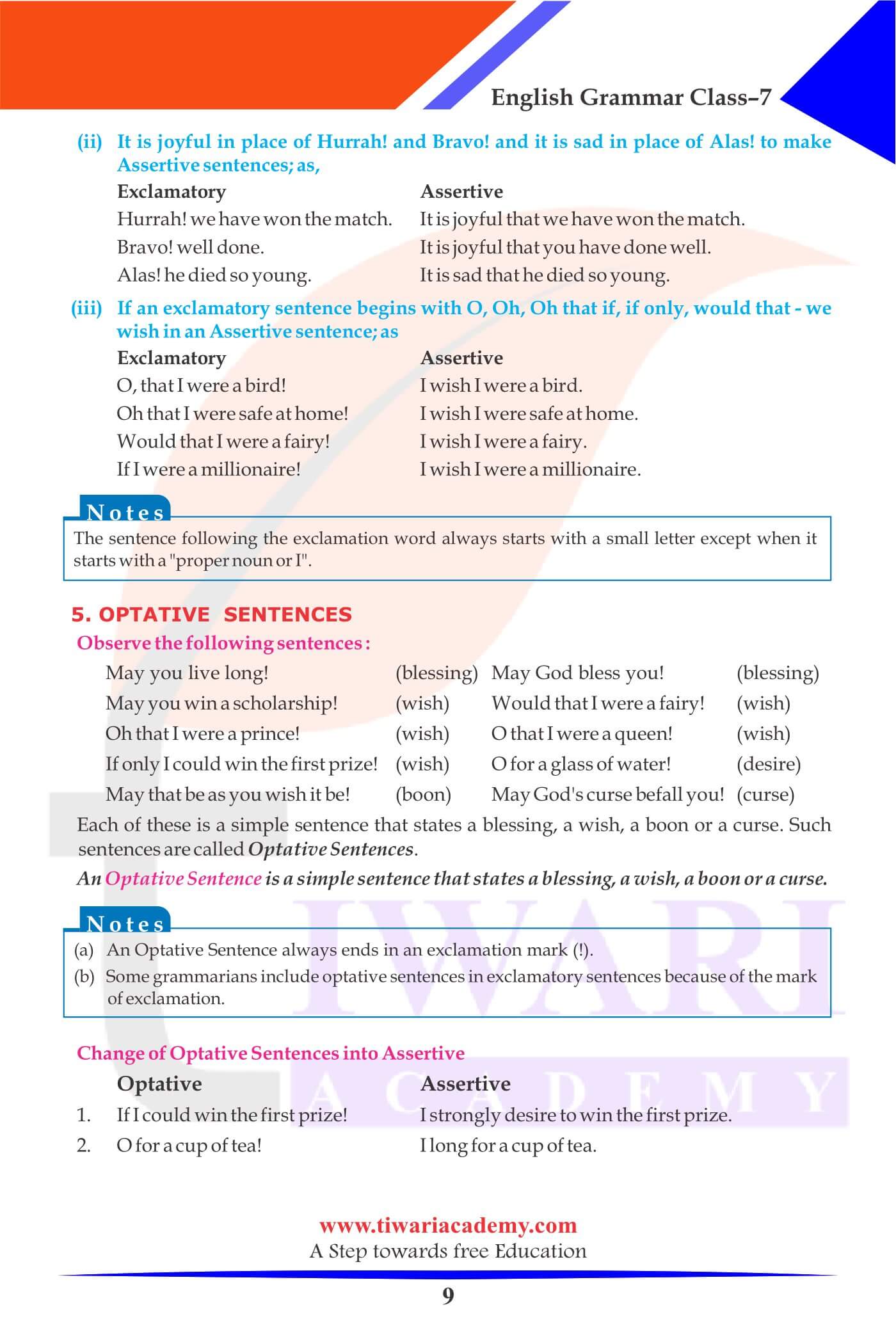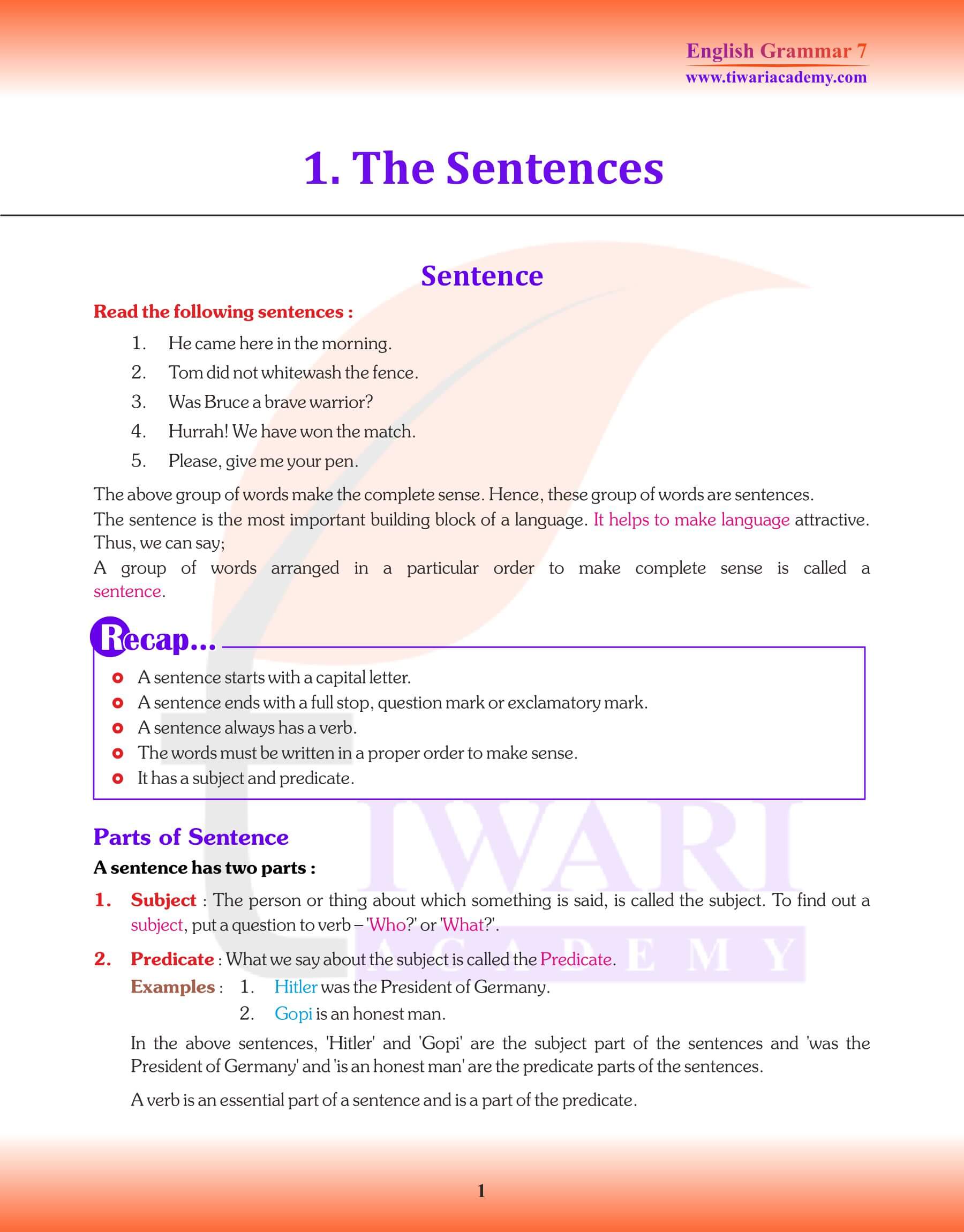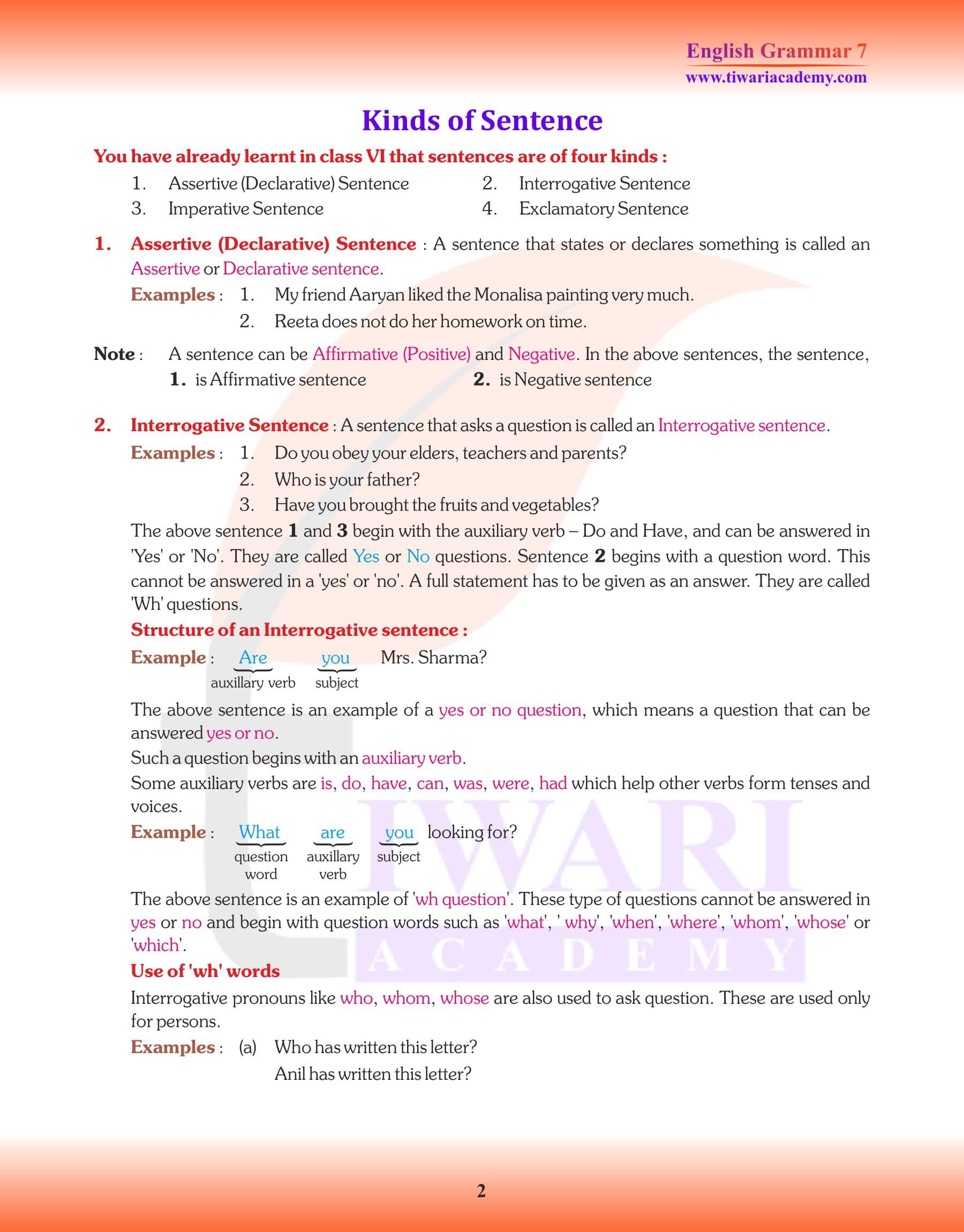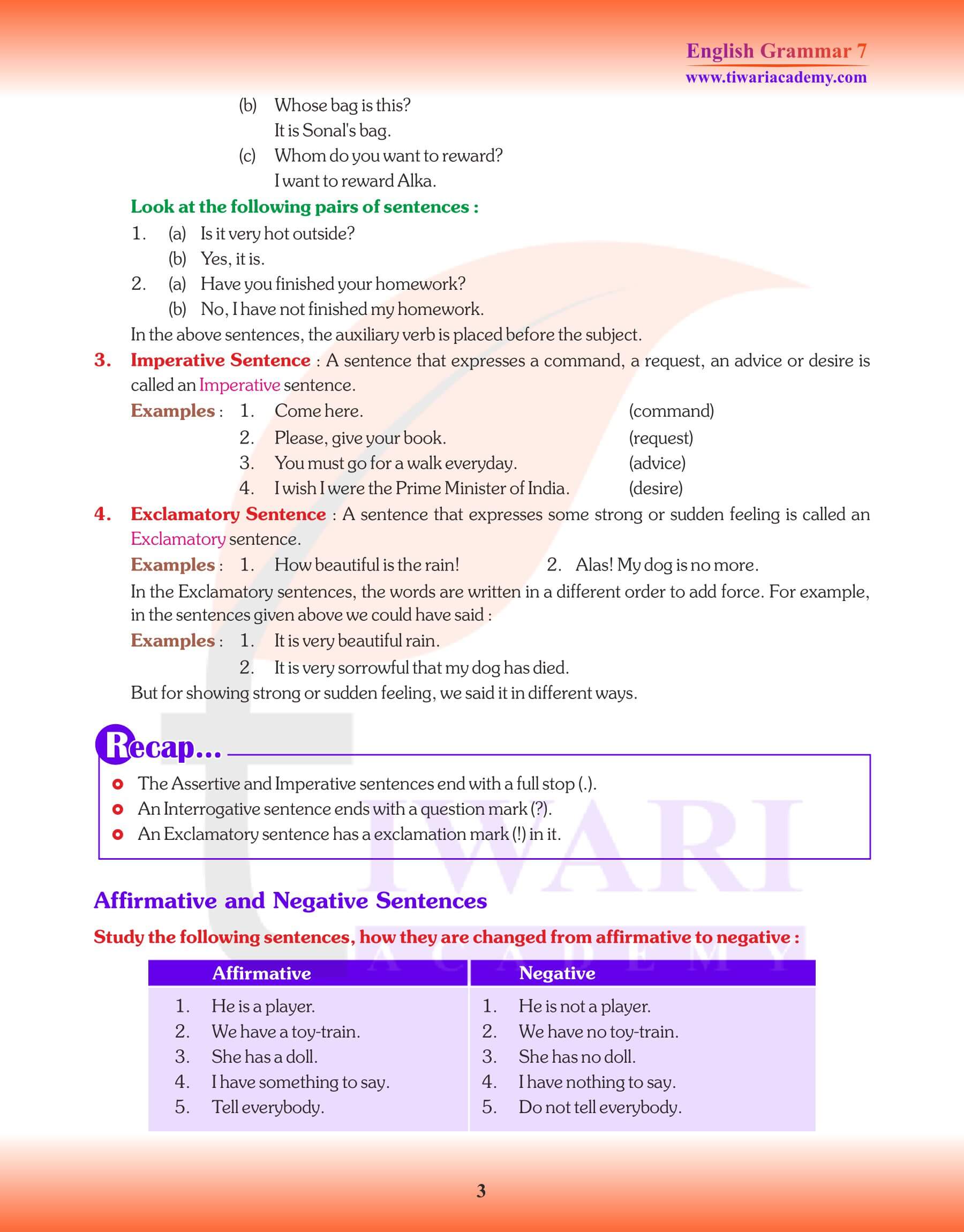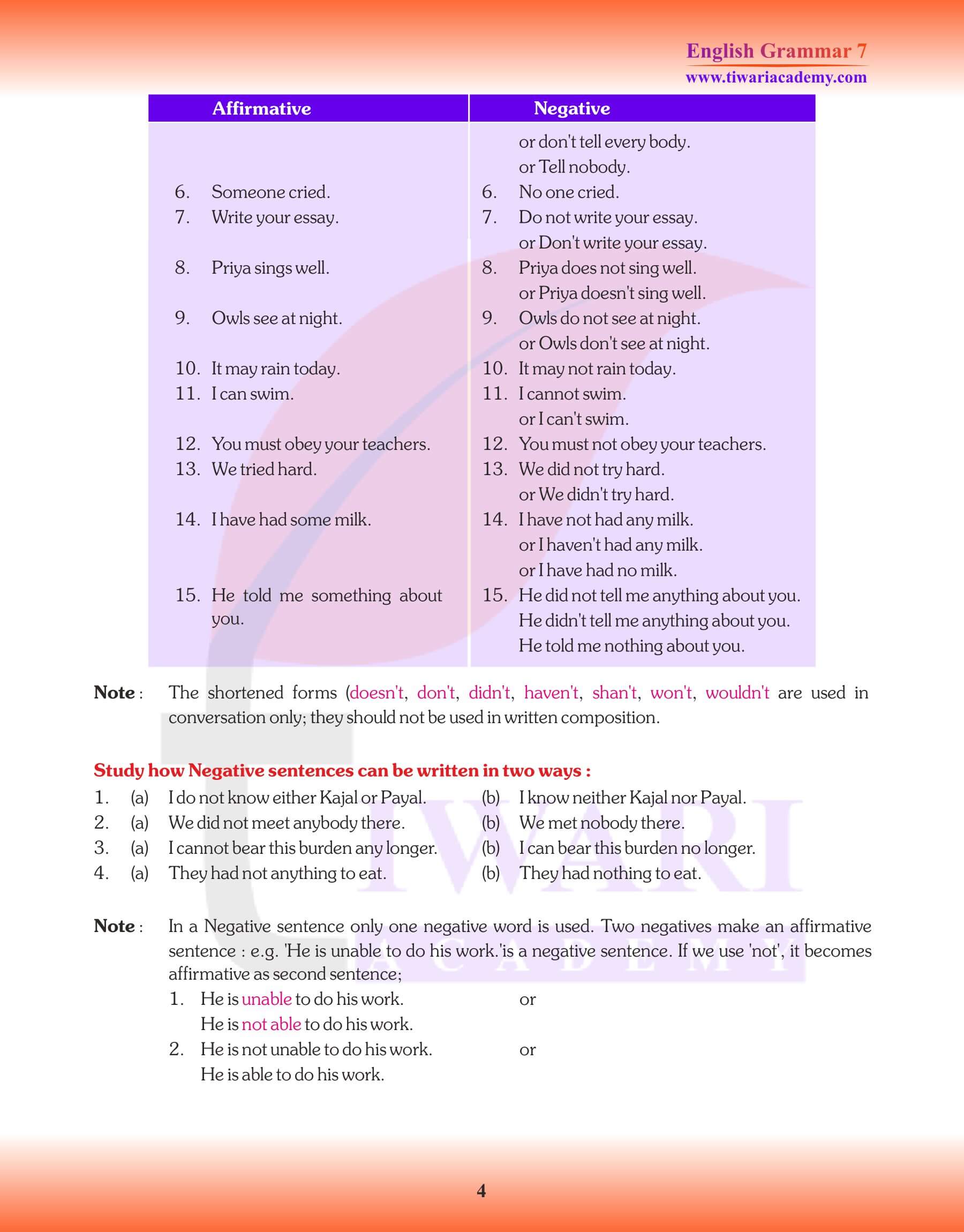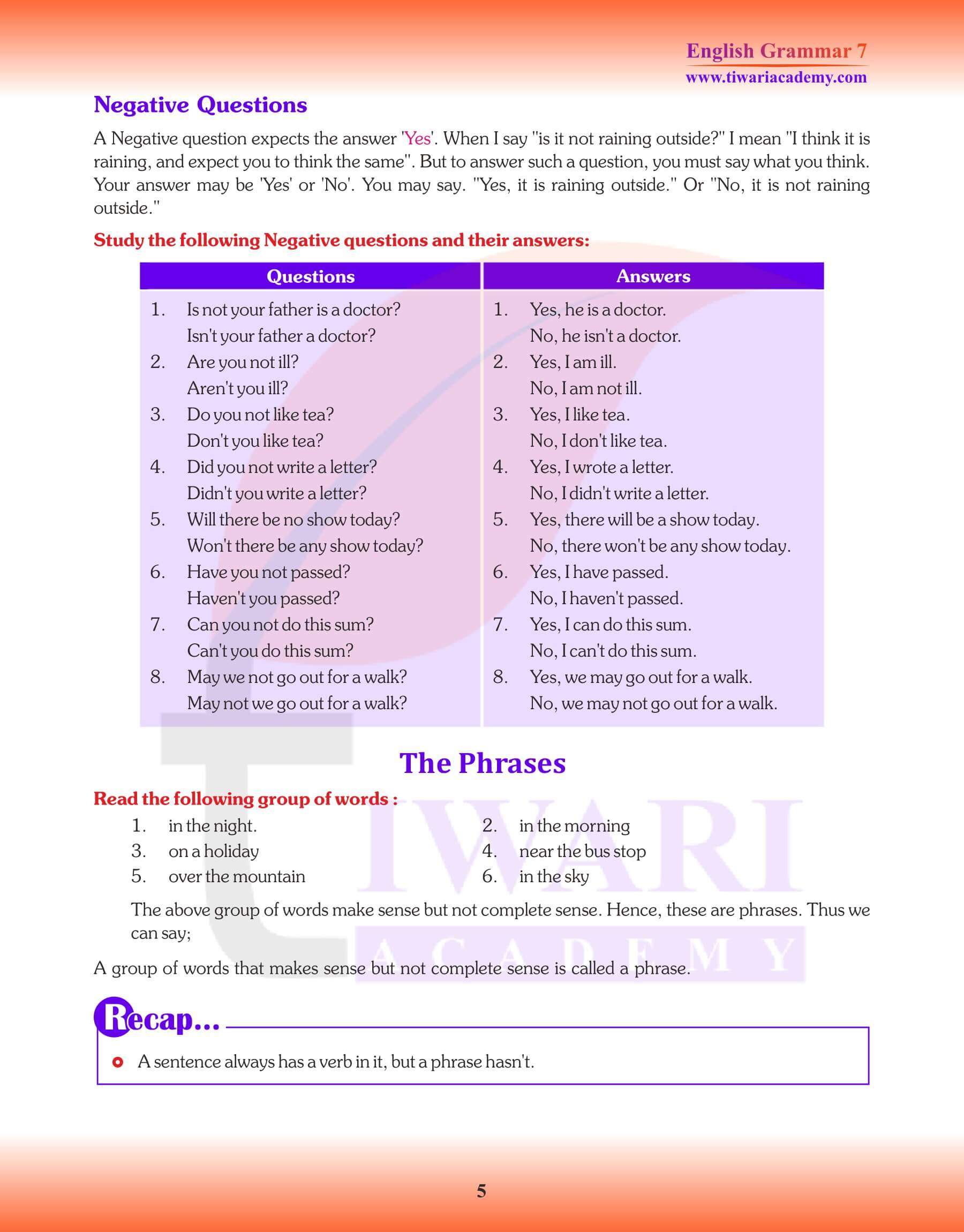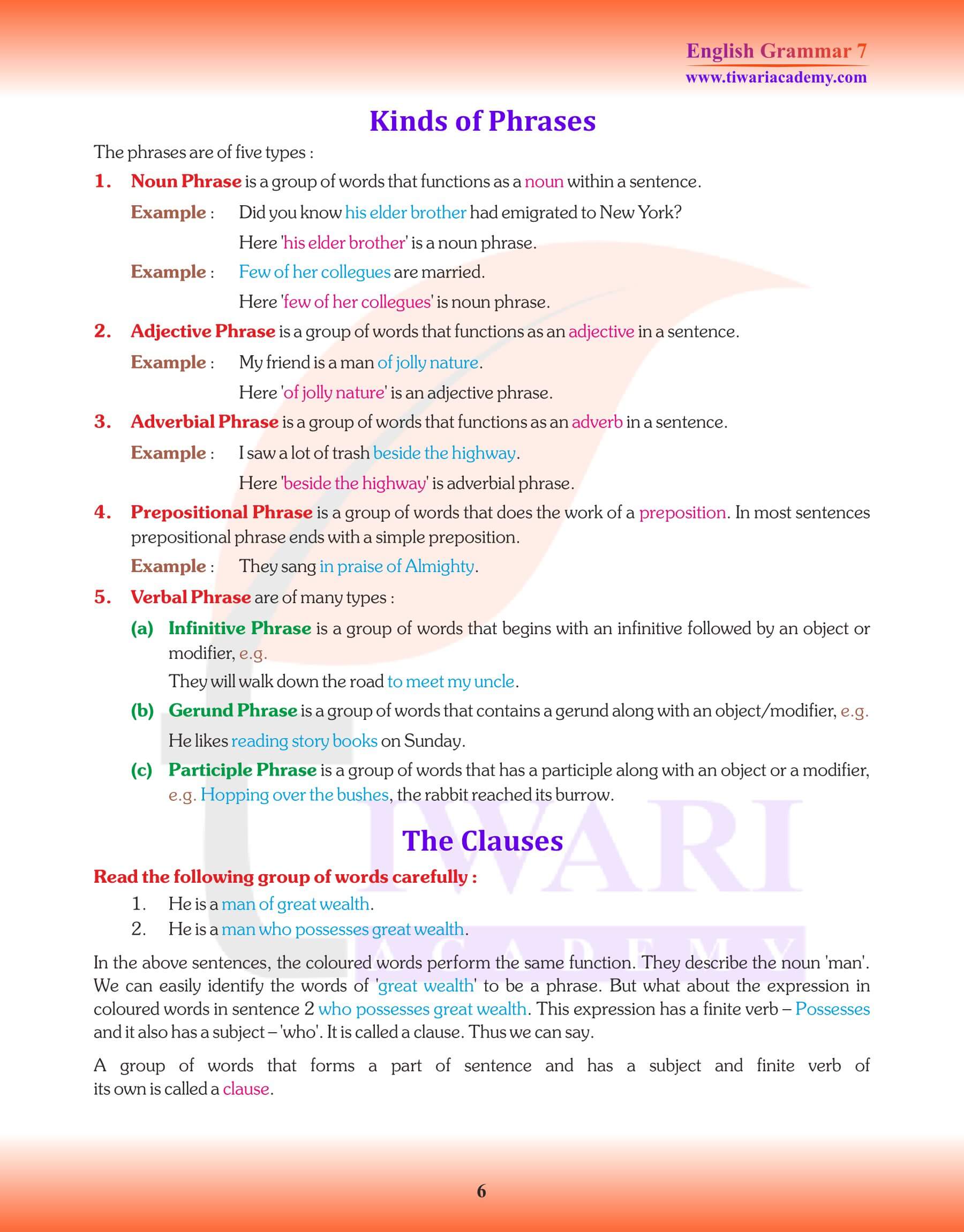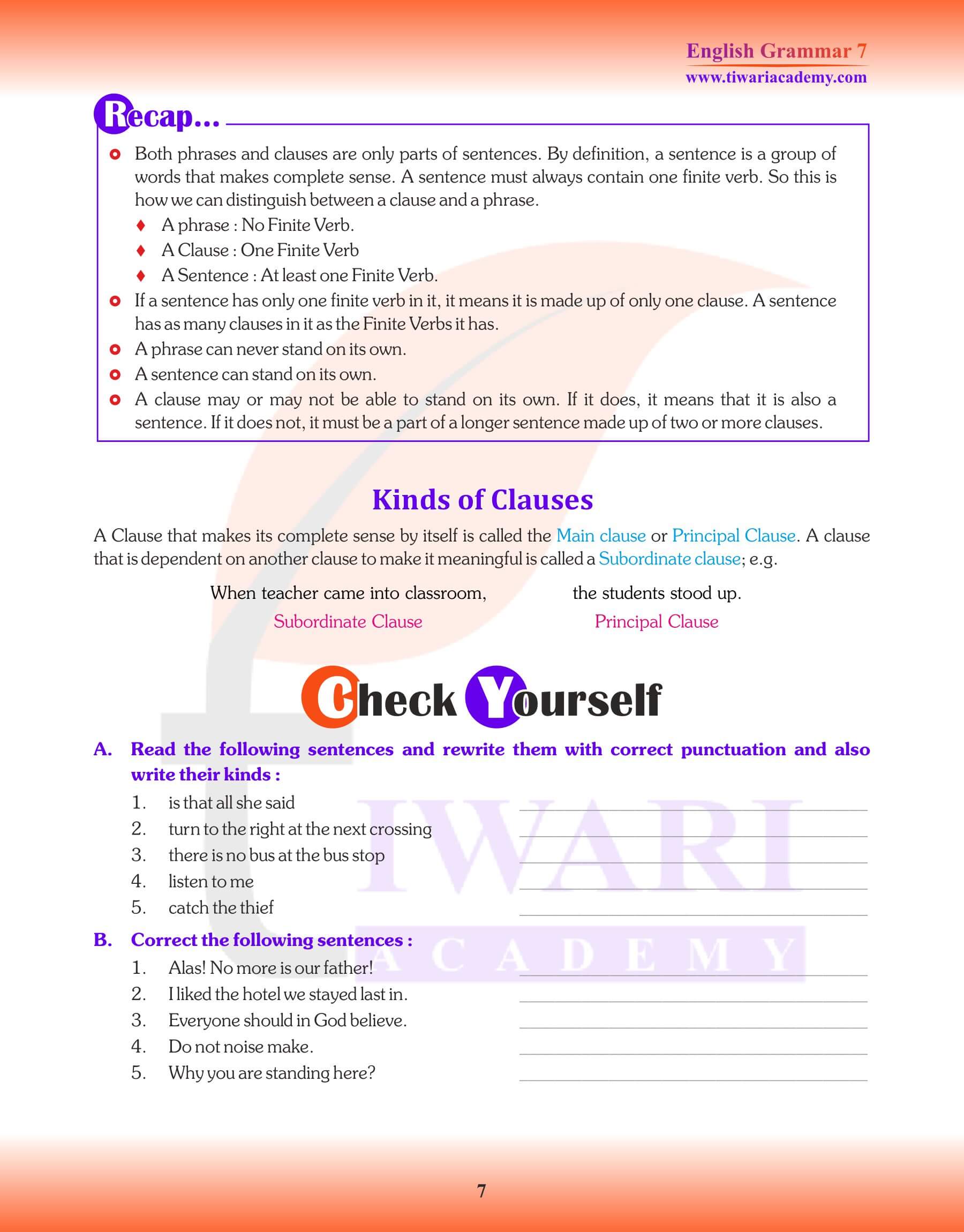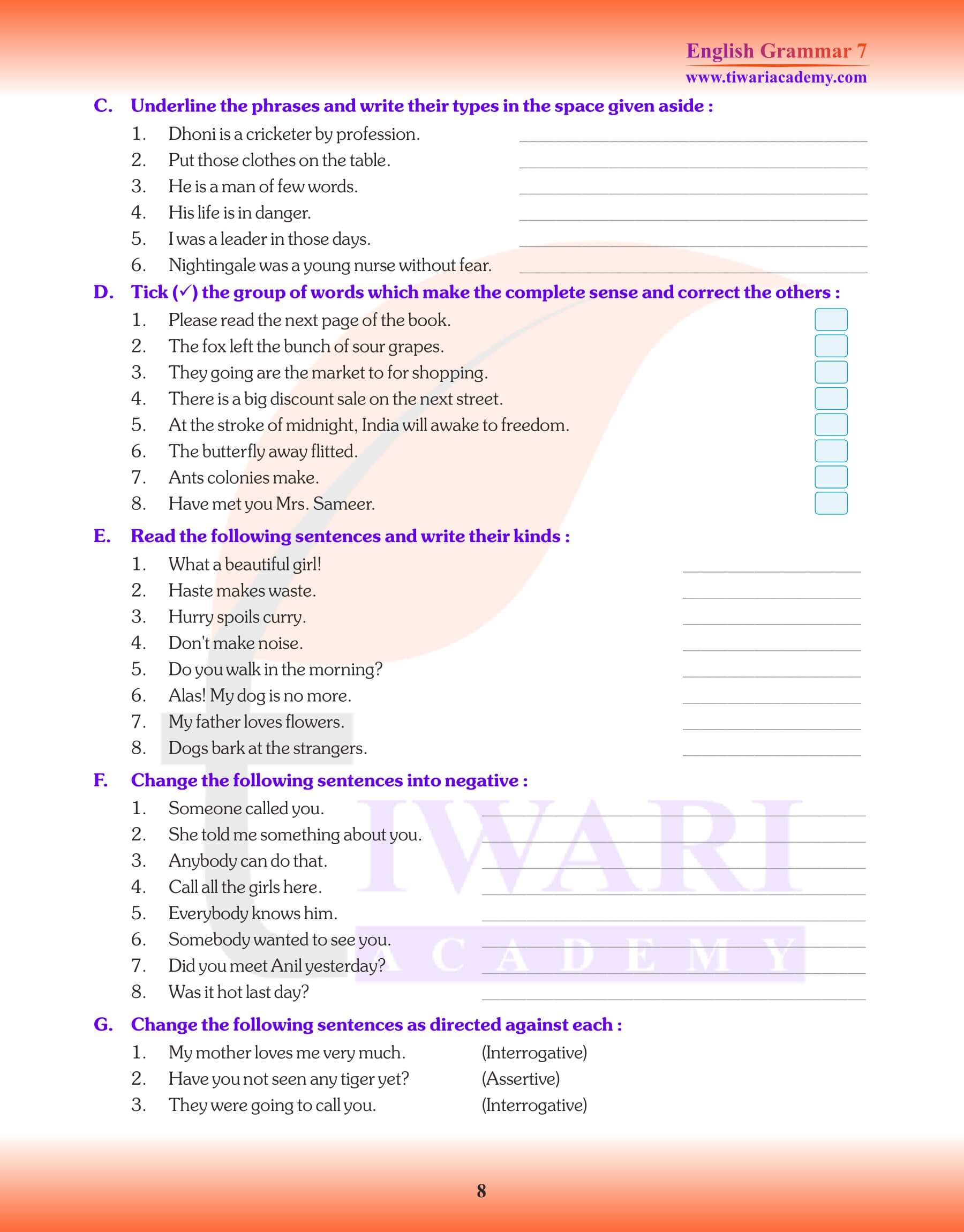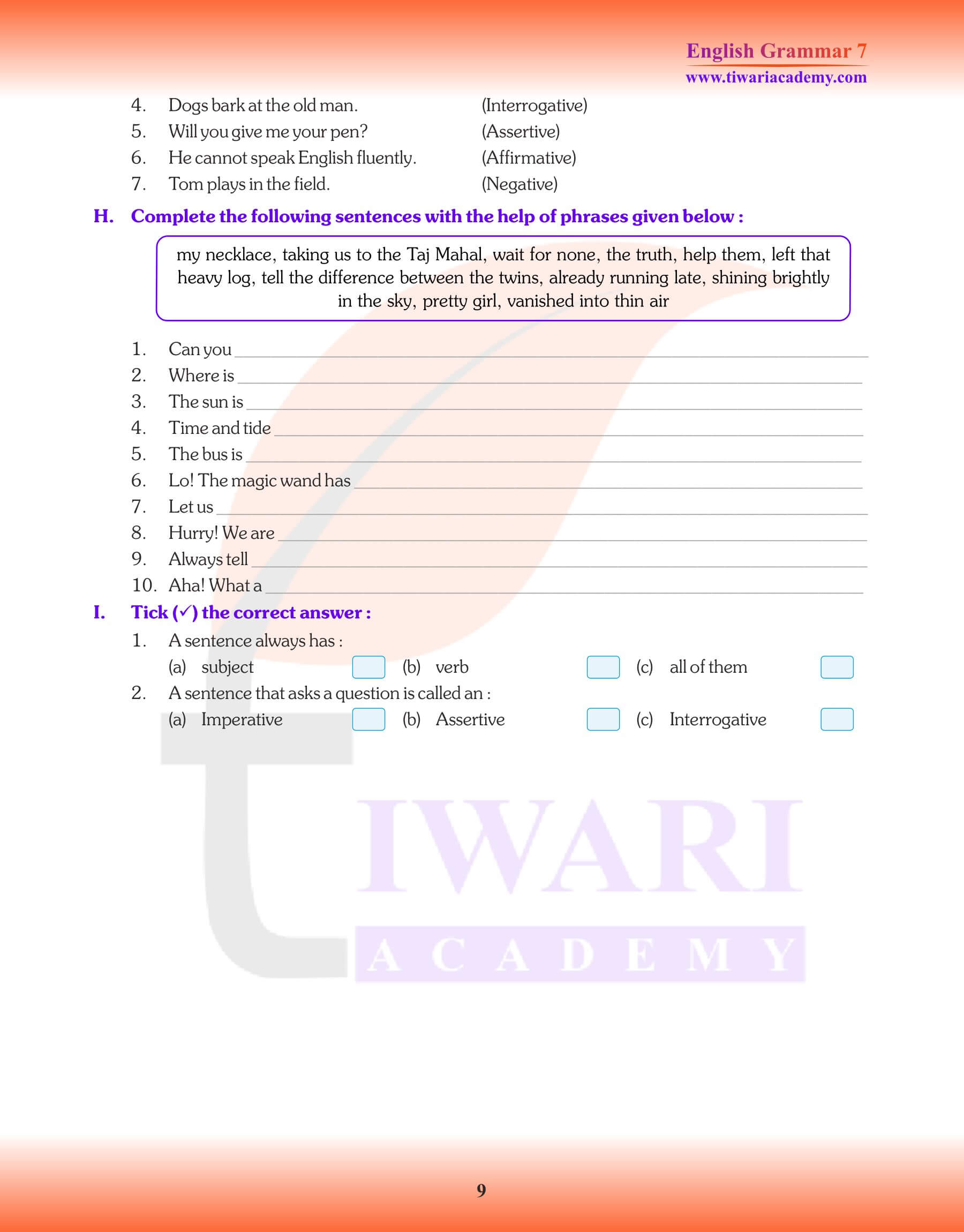Class 7 English Grammar Chapter 1 The Sentence. Here, we will learn about the different kind of sentences with example and explanation. When we speak or write something, we use words. The words used in speech are called spoken words. The words used in writing are called written words. Words are made up of letters. Words spoken or written in a group express what we want to say to another person. A word-group may be small or big. “A word is a group of letters that has some meaning.”
Class 7 English Grammar Solutions Chapter 1 The Sentence
Class 7 English Grammar Chapter 1 The Sentence for 2025-26
In Chapter 1 of Class 7 English Grammar, we delve into the foundational concept of sentences. A sentence is more than just a random assortment of words; it’s a structured combination that conveys a clear message or idea. Whether spoken aloud or jotted down, sentences are the building blocks of communication. These sentences, based on their construction and intent, can be categorized into different types, each serving a distinct purpose. By mastering the art of sentence formation, one can effectively express thoughts, emotions, and information.
| Class: 7 | English Grammar |
| Chapter: 1 | The Sentence |
Class 7 English Grammar Solution: Chapter 1 – The Sentence.
Phrase
According to Wren and Martin a group of words, which makes sense but not complete sense, is called a phrase, They are groups of words which make sense, but their sense is not complete. They do not express a whole idea; as, in the park, in front of, on the table, under a shady tree etc.
The foundation of any sentence lies in the words it comprises. Words, which are sequences of letters, carry meaning and are the essence of language. There are two primary mediums for words: spoken and written. Spoken words, as the name suggests, are vocalized, while written words find their way onto paper or digital screens. Regardless of the medium, the power of words is undeniable. As we navigate through language learning, it’s essential to remember, “A word is a group of letters that has some meaning.” This understanding is pivotal in mastering the intricacies of English Grammar.
Class 7 English Grammar Chapter 1 Explanation
Sentence
When groups of words make complete sense. They are sentences. According to Wren and Martin a group of words which makes complete sense is called a Sentence.
- The girls are playing.
- Amit is standing in front of the house.
- Cows are sitting under a shady tree.
- The children are playing in the park.
- The books are on the table.
Simple Sentence
A simple sentence is made up of one complete subject and one complete predicate. Declarative or Assertive Sentences, Questions or Interrogative Sentences, Imperative Sentence or Commands Exclamatory Sentences,
Optative Sentences.
| Positive Statements | Negative Statements |
|---|---|
| 1. We are rich. | We are not (aren’t) rich. |
| 2. She can swim. | She can not (can’t) swim. |
| 3. I shall help you. | I shall not (shan’t) help you. |
| 4. You should work hard. | You should not (shouldn’t) work hard. |
| 5. We have clothes. | We have no (haven’t) clothes. |
| 6. He has a cow. | He has no (hasn’t) cow (s). |
Interrogative Sentence
An Interrogative Sentence is a simple sentence that asks a question about something. Each of these is a simple sentence. It asks a question or interrogates about something. So, such sentences are called questions or interrogative sentences.
- Do you smoke?
- Are you ill?
- What is your name?
- Where do you live?
- It is very hot today, isn’t it?
- It is not very hot today, is it?
Change of Assertive Sentence into Interrogative Sentence
We can change an assertive sentence into interrogative by placing the special verb in the beginning of the sentence.
| Positive/Assertive Sentences | Interrogative Sentences |
|---|---|
| He has passed. | Has he passed? |
| They played football. | Did they play football? |
| She can swim. | Can she swim? |
| Hans might take tea. | Might Hans take tea? |
| I shall buy a book. | Shall I buy a book? |
| They were playing. | Were they playing? |
Forming Questions
They begin with question words (what, when, why, where, who, whom, whose, which, how, how many, how much, how old, how far etc.)
- What is your name?
- When do you go to school?
- Whom do you want?
- Which doll does she like?
- How do you climb a tree?
- How old are you?
- Whose book is this?
- How far is your village?
- How much money have you?
Question Tags or Tail Questions
It is a common practice in conversation to make a statement and to ask the listener to confirm it. Helping verbs are used to make question tags. The subject of the Question Tag is always a Pronoun. A positive statement takes a negative tag and a negative statement a positive tag.
- I am busy, aren’t you?
- I am not busy, am I?
- The earth is round, isn’t it?
- You are a fool, aren’t you?
- You live at Shrinagar, don’t you?
- You don’t like it, do you?
- He can speak English, can’t he?
- You won’t forget, will you?
- Let us leave now, shall we?
- She isn’t going alone, is she?
Exclamatory Sentences
Exclamatory Sentences are those which express strong or sudden feelings or emotions of joy, wonder, anger, sorrow, contempt etc. Such a sentence usually begins with how or what and ends in an Interjection.
- How wise Pushpender is! (wonder)
- What a lovely doll (it is)! (surprise)
- What charming looks! (surprise)
- Hurrah! I have passed. (joy)
- Fie! How dirty a room. (contempt)
- Alas! I am undone. (sorrow)
- Alas! I have failed. (sorrow)
- Shut up! You wretch. (anger)
- Bravo! You have won the war. (praise)
- Hello! How goes the world? (greeting)
